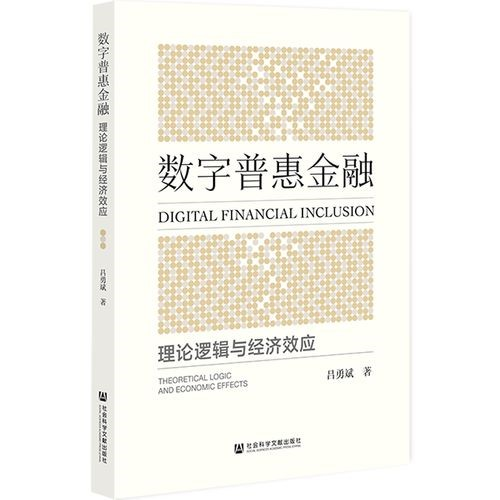The monograph "Digital Finance Inclusion: Theoretical Logic and Economic Effects" by Professor Yongbin Lv, the deputy director of the Base, was officially published by Social Sciences Academic Press in January 2022.
This book focuses on the two main lines of theoretical logic and economic effects of digital inclusive finance. With theory as the research basis and logical starting point, it systematically explores the basic principles, economic effects and policy basis of digital inclusive finance. First of all, the theoretical analysis framework is constructed to understand the logic of digital technology affecting financial operation, that is, how digital technology promotes the development of inclusive finance. Second, conduct a series of empirical studies to assess the impact of deeper integration of digital technology and financial inclusion on individual and social well-being. Thirdly, a series of political research reports will be formed to promote the decision-making and application research of digital inclusive finance in epidemic prevention and control, poverty alleviation and support for small and medium-sized enterprises. The research on digital financial inclusion in this book forms a trinity of economic logic system and analysis framework of "theory, demonstration and policy", which helps to improve the understanding of multi-dimensional, multi-level and multi-perspective of digital financial inclusion.
Compared with the existing researches, the innovation and research characteristics of this book are mainly reflected in the following aspects.
First, it constructs a rigorous economic logic analysis framework of digital inclusive finance. This book focuses on the two main lines of theoretical logic and economic effects of digital financial inclusion. Taking theory as the research basis and logical starting point, it explores and systematically evaluates the basic principles, economic results and policy basis of digital financial inclusion. There are both theoretical basis, empirical research and policy analysis, forming a "theory - empirical - policy" trinity of complete logic system.
Second, it clarifies the theoretical basis and operational logic of digital inclusive finance. On the basis of sorting out the concept and connotation of digital inclusive finance, focusing on the rationality of financial welfare distribution has been mapped to the issues of equality of opportunity, fairness and justice in the development of inclusive finance. On the basis of refining the unique attributes of digital technology, the paper deeply understands the basic logic of digital technology affecting financial operation, that is, how digital technology promotes the development of inclusive finance. This is conducive to expanding the research frontier of digital economy and digital finance, providing a new paradigm for solving new problems, and providing theoretical and logical support for subsequent empirical research.
Third, a series of empirical studies are carried out from the macro and micro levels. The book assesses the impact of deeper integration of digital technologies and financial inclusion on individual and social well-being, namely whether digital financial inclusion can bring more technological dividends, more efficient market functioning and more inclusive economic systems to consumers, entrepreneurs, government departments and financial institutions. Although the connotation of digital inclusive finance is constantly enriched and the practice is constantly developing, the relevant empirical research is still relatively lagging behind. The book's series of empirical studies at the macro and micro levels are expected to fill some of the gaps.
Fourth, adhere to the methodology of combining macro perspective with micro basis. This book combines macro-perspective investigation and micro-basic research to study the major theories, practices and practical issues of digital financial inclusion from the macro level, and to find credible evidence of the economic effects of digital financial inclusion from the micro-data level. This book mainly uses the survey data of Chinese household finance, the Peking University Digital inclusive Finance Index, the annual data of small and medium-sized banks, the data of county-level administrative units and the data of prefectural city administrative units, to find out from the micro data the impact of digital inclusive finance on household debt, bank risk taking, anti-poverty, income gap, environmental pollution and other macro issues.

